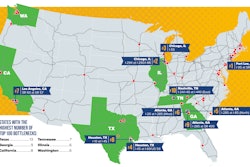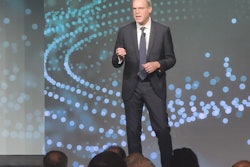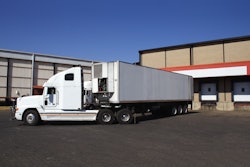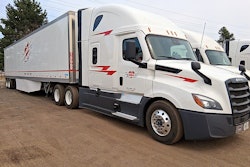The spring features many industry events like TMC 2024, SAE World Congress, and more. Attendees at these events get access to a tremendous amount of information, mostly provided by volunteers. In the case of TMC and SAE, these volunteers work nearly year round to provide updates to critical industry documents like Recommended Practices and Standards.
Freight organizations that exist through volunteers have been challenged, in my experience, over the last decade by a struggle to entice new participants. If you look back at the period prior to World War II, it was these types of industry groups that actually enabled the U.S. to become the arsenal of democracy. Industry organizations were the “go to” people to make miracles happen.
Over the decades, I believe companies and their investors have lost sight of the immense value added by volunteerism in industry groups. In many cases, the focus has become how to measure the return on investment (ROI) of the individual participating for a company. How do you measure the ROI of someone attending an educational conference? How do the bean counters assign profitability to someone participating on a task force?
Most of the organizations I have been involved with usually have a disclaimer that the individuals are not representing their companies, but are lone expert contributors. Who are we fooling? With the exception of retirees giving back to industry, the majority of industry association engagement is done by people working for a company that is paying for their time, travel, and often providing access to information.
Demanding some measurable ROI from someone attending an event is probably a legitimate request from a company accountant. The struggle is that chief engineers and company executives cannot elucidate or enumerate answers for the accountants. There used to be an unwritten rule in some organizations that to get travel approval to attend an industry event, the engineer would have to author an industry paper or give a presentation. That provided, in some small way, a metric allowing at least a start at estimating the cost/benefit ratio of allowing an employee to participate.
I see less and less implementation of this, and more focus on sending managers to events. No doubt there is value in sending managers but often the information gleaned from an event is not adequately related back to the engineers, drivers, technicians, and people who are doing the work.
Often, significant experience is gained by participating over time in task forces at the contributor level. Many organizations have reduced their participation over time for many industry groups, leaving only the seasoned "gray beards" that have been around a long time working in these voluntary capacities. That group is a diminishing asset as they are leaving the industry and heading to retirement.
The point of all this is that activities like developing standards and recommended practices have huge value to an industry, but only if industry personnel participate in their development. An accountant may not be able to put a dollar value on standardizing a connector but think of the net benefit that standardizing enables across an industry that has more than 10 million vehicles on the road, an estimated 40,000 truck stops, more than 2,200 heavy-duty truck dealerships and dealerships alone that employ more than 134,000 people.
It’s all about monetizing the value of volunteerism for companies. Engineering firms used to have subject matter experts (SME) that needed to participate in industry groups to gain status as an SME. Sadly, some major companies aren’t even represented on key industry groups covering products they develop and sell. The same is true of fleets.
There is myth perpetuated that recommended practices and standards somehow inhibit creativity; somehow prevent invention. The fact is that most industry organizations internally require a periodic review of standards, regularly update them, and regularly start new ones when appropriate. In many cases, the development of the standard actually encourages innovation, development and research.
Volunteers make these standards and recommended practices happen. They contribute time and energy to develop and see documents through the sometimes painfully long approval cycles. It is not uncommon for some of these efforts to take years. That timing is clearly very dependent on industry engagement or the lack thereof.
Becoming an SME is also becoming more difficult because of the nature of the company-employee relationship. For decades, it was common for employees to develop inside their companies, gaining expertise over time. In more recent decades, that business model has been shattered with not much company loyalty to its employees or, conversely, employee loyalty to the company. That ship has sailed. Employee turnover has become a critical metric at companies, likely now measured in months.
How do companies encourage volunteerism in an environment that may not encourage lengthy participation? How do you develop SMEs when employees switch companies or jobs regularly? Those are tough questions the trucking industry needs to address.
Answers will critically impact the success or failure of industry groups like TMC, SAE and others. The failure of management to not quantify the value of these industry groups will lead to less and less engagement by less and less experienced people, ultimately making these groups irrelevant.
The loss to the trucking industry and society would be significant if this trend cannot be redirected.













